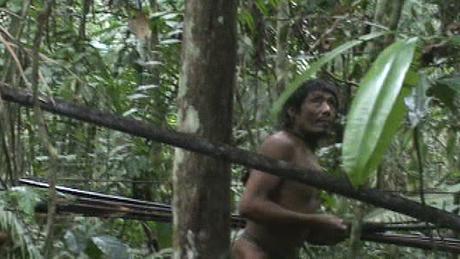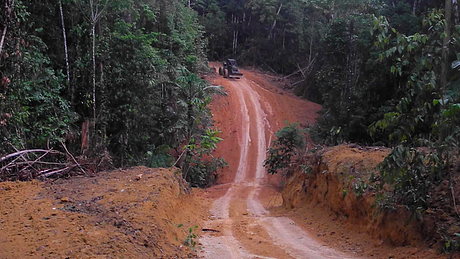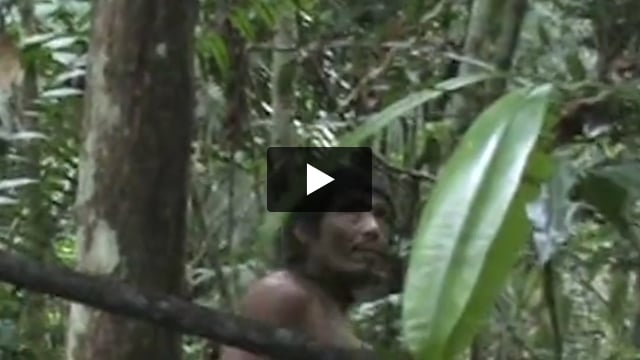Revealed: Genocidal plot to open up territory of uncontacted Amazon tribe
April 11, 2017
 © FUNAI
© FUNAIThis page was last updated in 2017 and may contain language which is now outdated.
Survival International has learned that politicians from a notoriously violent town in Brazil are lobbying behind the scenes to open up the territory of a vulnerable uncontacted tribe.
Councillors from Colniza in central Brazil, which is dominated by illegal logging and ranching and for years was Brazil’s most violent town, have met the Minister of Justice to lobby for the Rio Pardo Indigenous territory to be drastically reduced in size. The minister is reportedly sympathetic to the councillors’ proposals.
Their plan is for road-builders, loggers, ranchers and soya farmers to move in, despite the territory being home to the last of the Kawahiva tribe, one of the most vulnerable peoples on the planet.
 © FUNAI
© FUNAI
The Kawahiva depend entirely on the rainforest for survival, and have been on the run from loggers and other invaders for years.
The Rio Pardo territory was only recognized in 2016, following a global campaign by Survival International and pressure within Brazil.
Thousands of Survival supporters contacted the then-Minister of Justice demanding action. Oscar-winning actor and Survival ambassador Sir Mark Rylance fronted a major media push, culminating in the signing of the decree that should have secured the Indians’ territory for good.
Now, however, vested interests in the region could undo much of that progress.
Survival’s Director Stephen Corry said: “Brazil must respect the rights of its tribal peoples. Uncontacted peoples, like the Kawahiva, clearly want to be left alone and to live as they please. But Brazil’s current leaders are holding closed-door meetings with corrupt politicians, and kowtowing to the agribusiness lobby, expressly to deny them that right. The stakes could not be higher – entire peoples are facing genocide as a result of this callous approach.”
Background briefing
The Kawahiva are hunter-gatherers, who migrate from camp to camp through the Rio Pardo rainforest.
Roads, ranches and logging all risk exposing them to violence from outsiders who steal their lands and resources, and to diseases like flu and measles to which they have no resistance.
All uncontacted tribal peoples face catastrophe unless their land is protected. Survival International is leading the global fight to secure their land for them, and to give them the chance to determine their own futures.
The current Brazilian government is attempting to roll back decades of gradual progress in the recognition of Indigenous peoples’ rights in the country. The Minister of Justice recently said: “Enough of all this talk of land [demarcation] – land doesn’t fill anyone’s stomach.” And the new head of Indigenous Affairs Department FUNAI has said “Indians can’t be ‘fixed in time.’”



